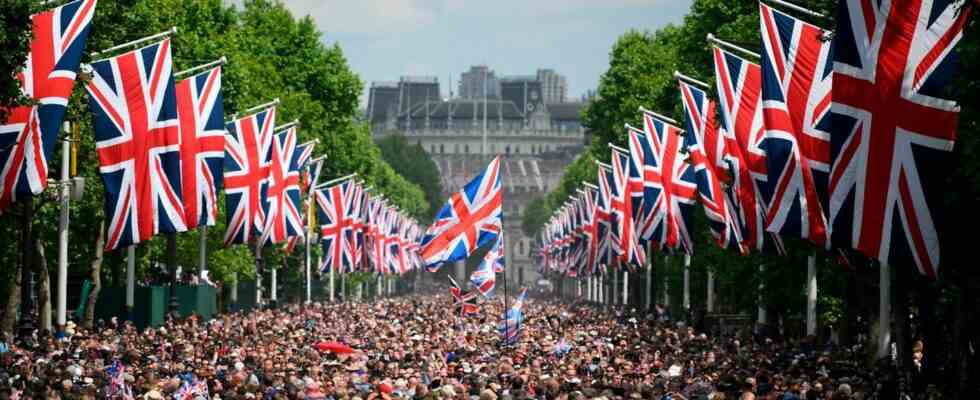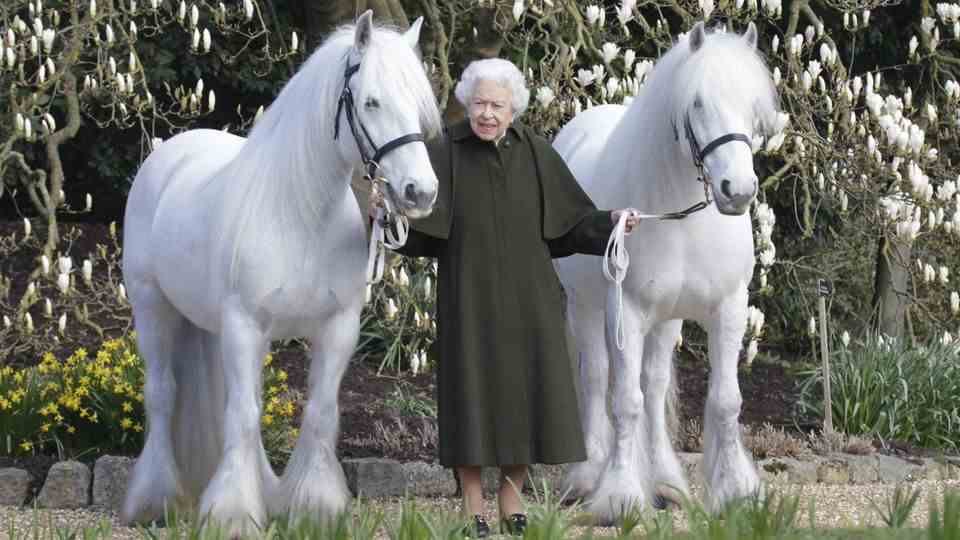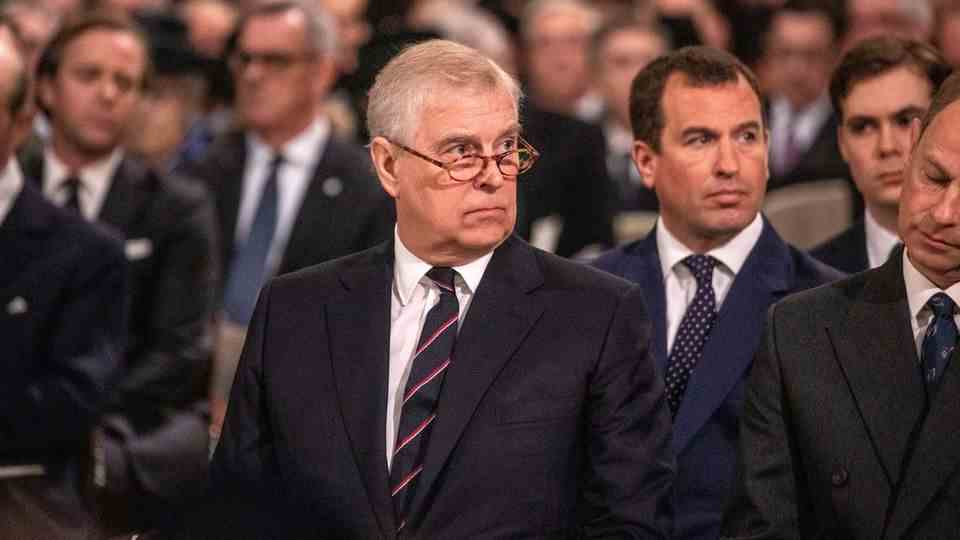Current survey
Monarchy increasingly unpopular: majority of Britons have no interest in the throne jubilee
Crowds celebrate the monarchy at the Trooping the Color parade
© Daniel Leal/ / Picture Alliance
The whole world is watching as England celebrates a big festival for four days since last Thursday in honor of Queen Elizabeth II and her 70th anniversary of the throne. But the opponents of the monarchy are getting louder in Great Britain.
All Britons celebrate the Queen’s 70th anniversary. All Brits? no According to a survey, a majority has no interest in the celebrations. Is the end of the monarchy near?
At first glance, it is a bombastic celebration for the Queen, but it already looks a bit like a pompous farewell for the record queen. The UK is pulling out all the stops as Queen Elizabeth II celebrates her 70th jubilee. On Saturday there will be a horse race – the Queen is a huge fan of equestrian sports – and a mega-concert with many stars at Buckingham Palace.
For a total of four days, the country fell into a royal frenzy, almost everyone with rank and name takes part in the celebrations, millions of Britons across the country cheer their 96-year-old monarch. But if you take a closer look, it becomes clear that not all Brits are participating. And opponents of the royal family are hoping that the royal celebration will be followed by a colossal monarchy hangover.
The majority of people in the country don’t care about the “jubilee,” said Graham Smith of the anti-monarchy organization Republic of the German Press Agency. He referred to a survey that Republic commissioned from the polling institute Yougov. Only 11 percent expressed great interest and another 32 percent “quite” interest. On the other hand, 29 percent were “not very” and another 25 percent “not at all” interested. Ultimately, many people would appreciate an extra day off.
It stands to reason that the “Jubilee” will be the Queen’s last major appearance. The head of state appeared three times in public, especially at the start, smiling and apparently in a good mood. But the day was exhausting for the queen, it was heard. At the thanksgiving mass in St. Paul’s Cathedral, the monarch apologized, as she did at the horse race on Saturday – faith and horses, along with family, are her most important cornerstones.
The Queen is increasingly represented by Prince Charles and Prince William
The Queen is increasingly being represented by her eldest son, Prince Charles, and her grandson, Prince William. Royals experts comment that she wants to put things in order and show that the successors enjoy her trust. Critics like Smith, however, are convinced that the approaching change in the throne will lead to a historical turning point. “For most people, the monarchy and the queen are the same thing,” said the activist. That’s why he hopes that the end of the Queen will also herald the end of the monarchy.
The demographic development seems to speak for the opponents of the royal family. More than 60 percent of Britons still support the institution. But the number has fallen by a good ten points since Elizabeth’s Diamond Jubilee in 2012. It is striking that the support decreases the more the younger the respondents are. In the 18 to 24 age group, opponents and supporters are almost equal, each at around a third.
Expect a growth in royal opponents under “King Charles”.
Smith hopes that support for her much less popular son Charles will continue to fall if the polls are already falling when the Queen was quite popular. Both the heir to the throne and William don’t matter to the people. “The chances of (William’s son) George ever sitting on the throne are pretty slim.”
Smith brushes aside arguments from supporters of the monarchy, including economic ones. There is no value in spending hundreds of millions of pounds a year in taxes. Tourists would continue to come and take pictures of Buckingham Palace. “It makes no difference whether the monarchy exists,” asserts Smith. In addition, the royals are neither democratically elected nor transparent in their actions. Instead, they caused a bad image with scandals such as the abuse allegations against Queen’s son Prince Andrew.
According to the critics, the role of the Queen as a unifying force for the United Kingdom is no longer effective. The family traveled to all parts of the country over the weekend: daughter Anne to Scotland, grandson William to Wales and youngest son Edward to Northern Ireland. But that doesn’t hide the fact that the country is more divided than it has been for a long time. In Scotland, many people strive for independence. Glasgow City Council refused to spend money on the ‘Jubilee’ celebrations. In Northern Ireland, for the first time, a party supporting reunification with the Republic of Ireland, which is part of the EU, recently received the most votes.
The Queen has said nothing about the crumbling Union or the skyrocketing cost of living that could plunge millions into poverty. “No politics” is the iron rule of the monarch. When the Queen – or her son Charles, as she recently did by proxy – reads the government program written for her by Downing Street, it seems more like folklore given the centuries-old rituals, dashing uniforms and white wigs. Activists like Smith are certain such images will soon be history.



